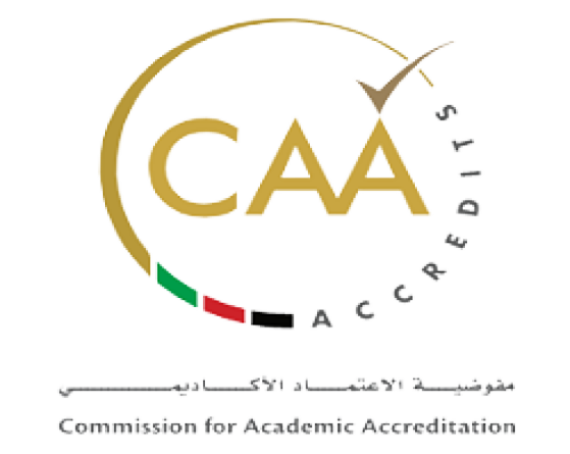Master of Architecture
Master of Architecture (M.Arch.)
Starting Fall 2026, the American University in the Emirates (AUE) proudly launches the Master of Architecture program at the College of Design.
This program is built for future architects who want to shape cities, create sustainable designs, and lead in a fast-changing world. You will gain the knowledge, skills, and creative mindset needed to design with purpose and cultural awareness.
The M.Arch. combines advanced design studios, technology, and sustainability — preparing graduates to play a key role in the growth of the UAE and beyond.
Why Choose the AUE M.Arch.?
- Global standards, local impact: Learn architecture with a worldwide outlook while focusing on the UAE’s urban future.
- Advanced design labs: Work with the latest tools in digital fabrication, sustainable planning, and smart cities.
- Mentorship: Be guided by practicing architects and experts in the field.
- Career-ready: Open doors to practice, urban design, real estate development, academia, and policymaking.
- Sustainability focus: Discover how to design for climate, energy efficiency, and green living.
Program Mission
The Master of Architecture program is dedicated to cultivating visionary leaders in architecture who can address complex global challenges through innovative design, sustainability, and technological advancements. The program emphasizes practical industry experience, critical thinking, and advanced research to shape the future of the architectural profession.
Program Goals
- Advance professional knowledge and expertise in architectural design and practice.
- Foster innovation and leadership in sustainable and technological architecture.
- Integrate industry-based training to ensure readiness for high-level professional roles.
- Promote interdisciplinary collaboration and global architectural perspectives.
- Encourage lifelong learning and contributions to architectural scholarship.
Upon completing the program, students will be able to:
- Design and execute complex architectural projects with innovative solutions.
- Integrate advanced technologies, including AI, into architectural practice.
- Conduct and apply research to address real-world architectural issues.
- Exhibit leadership and collaboration in multidisciplinary environments
- Promote sustainability and ethical responsibility in architectural decisions.
ADMISSION REQUIREMENTS
For further information, please click here
GRADUATION REQUIREMENTS
For graduate degree completion, graduate students must satisfy the following requirements:
- Earn a minimum CGPA of 3.00 on a scale of 4.00.
- Successfully complete all courses as described in the study plan.
- The Degree Completion requirements must be met within the timeframe of the program.
- Successfully complete the three “Thesis” courses.
ACCREDITATION
The American University in the Emirates is licensed by the UAE Ministry of Higher Education and Scientific Research – Commission for Academic Accreditation | caa.ae
Program Structure
Course Category
Total Number of Courses
Total Number of Credit Hours
Core Courses
11
39
Elective Courses
4
12
Thesis 1
1
9
Total
60 Credit Hours
Course Modules & Description
CORE COURSES
11 COURSES | 39 CREDIT HOURS
This course focuses on the development of advanced architectural design skills through complex projects that address contemporary challenges. Students will integrate theoretical frameworks, innovative technologies, and sustainable practices to create solutions for real-world architectural problems. Emphasis is placed on concept generation, iterative design processes, and effective presentation techniques.
A continuation of Advanced Design Studio I, this course challenges students to engage in multidisciplinary design approaches and tackle large-scale projects. It emphasizes urban context, user experience, and advanced structural systems. Students will refine their design portfolios through detailed technical drawings, 3D modeling, and professional critiques.
This course explores significant historical movements and theoretical frameworks in architecture, focusing on their relevance to contemporary design practice. Topics include critical analysis of architectural paradigms, cultural influences, and the evolution of design philosophies. Students will engage in research and discussions to develop a comprehensive understanding of architectural heritage and innovation.
This course examines sustainable design principles and environmental strategies for architecture. Topics include energy-efficient design, climate-responsive architecture, and green building certifications. Students will analyze case studies and develop projects that incorporate renewable energy systems, resource management, and ecological balance.
This course prepares students for the professional practice of architecture, covering topics such as project management, ethical considerations, and client relationships. Emphasis is placed on contract administration, financial planning, and leadership skills essential for successful practice. Real-world scenarios and case studies provide practical insights.
This seminar focuses on research methodologies and their application in architecture. Students will learn to formulate research questions, conduct literature reviews, and develop proposals. The course encourages critical thinking and innovation, culminating in a research paper or project aligned with their academic and professional interests.
This course explores the integration of artificial intelligence (AI) and computational tools in architectural design. Students will learn about parametric modeling, generative design, and machine learning applications in architecture. Practical assignments involve the use of advanced software to create innovative and efficient design solutions.
This course delves into the principles and practices of urban and regional planning. Topics include land use, transportation systems, and community development. Students will analyze urban challenges, propose planning solutions, and evaluate their social, economic, and environmental impacts through case studies and projects.
This course examines the latest trends, challenges, and innovations in the architectural field. Topics include digital fabrication, adaptive reuse, and global architectural practices. Students will critically analyze case studies and propose strategies to address emerging issues, fostering a forward-thinking approach to design.
This course provides an in-depth understanding of building codes, zoning regulations, and legal frameworks in architecture. Students will learn to interpret and apply codes to ensure compliance in design and construction processes. Practical exercises and real-world scenarios will enhance their regulatory knowledge and problem-solving skills.
This course introduces Building Information Modeling (BIM) as a comprehensive tool for design, construction, and facility management. Students will learn to create and manage digital representations of physical and functional characteristics of buildings. The course emphasizes collaboration, data integration, and visualization techniques to improve project outcomes.
ELECTIVE COURSES
CHOOSE FOUR COURSES | 12 CREDIT HOURS
This course explores the philosophical underpinnings of architectural design, focusing on how cultural, ethical, and aesthetic considerations shape design decisions. Students will engage in critical discussions about the role of design in society, the human experience, and the built environment, fostering a deeper understanding of design’s impact.
This course introduces the principles and methodologies of Life Cycle Assessment (LCA) in architecture. Students will evaluate the environmental impacts of materials, construction processes, and building operations from a cradle-to-grave perspective. Practical assignments include analyzing case studies to optimize sustainability in design and construction.
This course focuses on ethical considerations and inclusive practices in urban design. Topics include accessibility, equity, and participatory planning. Students will explore strategies to create urban spaces that promote social cohesion, environmental justice, and cultural inclusivity through case studies and design exercises.
This course examines the integration of heritage conservation within urban contexts. Students will explore the challenges and opportunities of preserving cultural and historical sites while accommodating modern urban growth. Case studies and projects will focus on balancing authenticity, functionality, and sustainability in heritage settings.
This course explores the concept of experiential branding and its application in architectural design. Students will learn how architectural elements can create immersive and memorable experiences aligned with branding strategies. Topics include sensory design, spatial storytelling, and user-centered design practices.
This course emphasizes environmentally responsible site planning and development. Topics include site analysis, stormwater management, and landscape ecology. Students will develop projects that integrate sustainable practices, such as low-impact development (LID) and green infrastructure, to enhance ecological resilience and site functionality.
This course addresses the role of architectural design in infection prevention and control. Students will explore strategies for designing healthcare facilities, public spaces, and other environments to minimize the spread of pathogens. Topics include air quality, material selection, and spatial organization, with an emphasis on evidence-based design.
Recommended Study Plan





